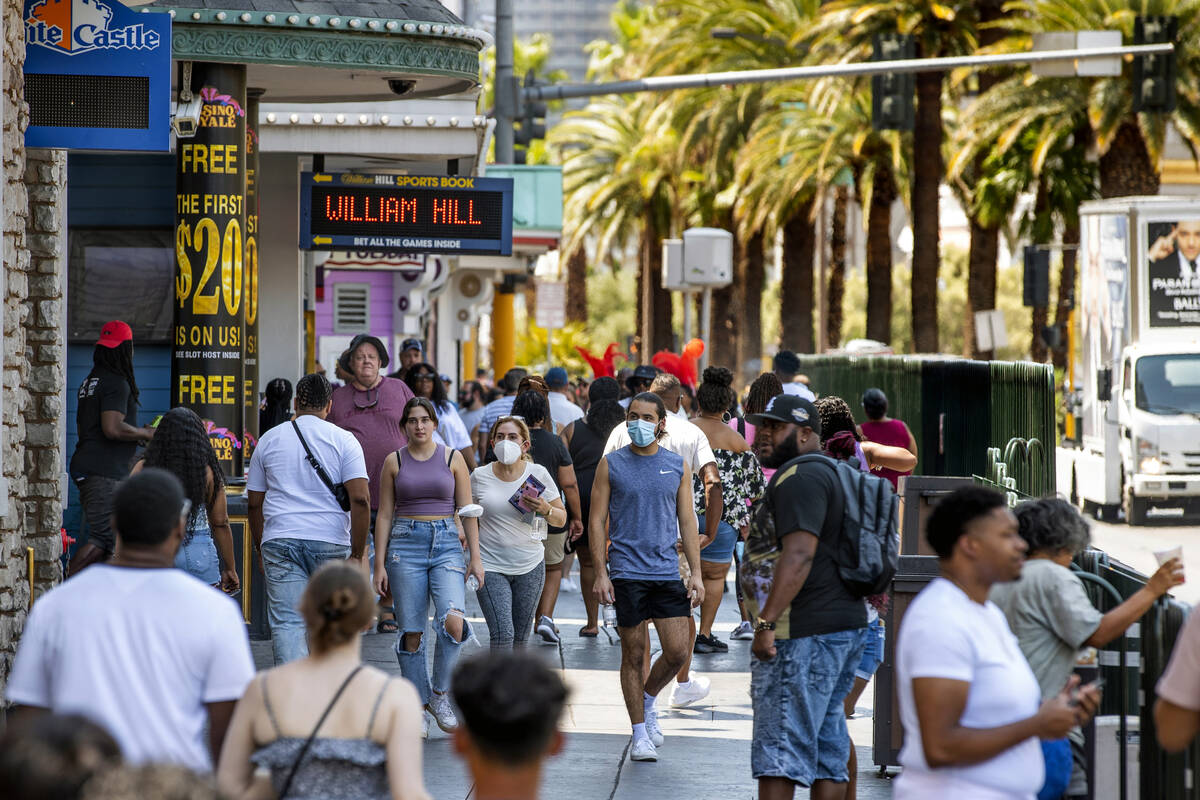EDITORIAL: Warning signs abound in Las Vegas economy
In terms of welcoming tourists, Las Vegas is in the midst of fully bouncing back from the coronavirus pandemic. In economic terms, Las Vegas faces a road fraught with concern.
For the second consecutive month, Las Vegas has the highest unemployment rate, 9.4 percent in July, among major metropolitan areas. That’s a significant drop from February 2020, when there were 1.14 million people employed in Las Vegas metro area. The unemployment rate was a microscopic 3.6 percent. In July, the number employed was just 1.06 million. That’s a difference of 80,000 people. The number of unemployed currently sits at 109,000.
Many of those jobs are in the leisure and hospitality sector, which employs around 70,000 fewer people than before the pandemic.
Counterintuitively, businesses are struggling to hire employees. Even 30 percent wage hikes and hiring bonuses have done little to attract workers to some businesses. Stories abound about people not showing up to job interviews.
Then there are Las Vegas’ soaring home prices. The median price of a new single-family home topped $440,000 in July. The median price for previously owned single-family homes is $405,000, up 23 percent since last July. Rents have jumped over 22 percent in the last year. The typical renter pays $1,662 a month.
Skyrocketing inflation eats away at family’s paychecks too. That includes gas in Las Vegas that’s more than 80 cents per gallon above the national average.
Many factors shape the economy. Las Vegas is an attractive place to live, and remote work has allowed many people to work from anywhere. All other things being equal, more people moving to Las Vegas was going to boost housing prices. The coronavirus pandemic also changed some people’s preferences when it comes to employment. They’re less willing to work in a restaurant, holding out for a remote-work opportunity.
But it also appears that government actions have warped the economy. Enhanced unemployment benefits ended Saturday. That extra money allowed some people to receive checks comparable to what they made while working.
The Federal Reserve is keeping interest rates low. This allows people to stretch their housing budgets, which helped drive up prices. Both the federal government and Gov. Steve Sisolak limited evictions for nonpayment. Artificially restricting supply is a sure way to drive prices up.
Government interference in the economy can appear helpful in the short-term, but government-created bubbles rarely end well. Let’s hope the end of enhanced unemployment benefits gets more Nevadans back to work.






















